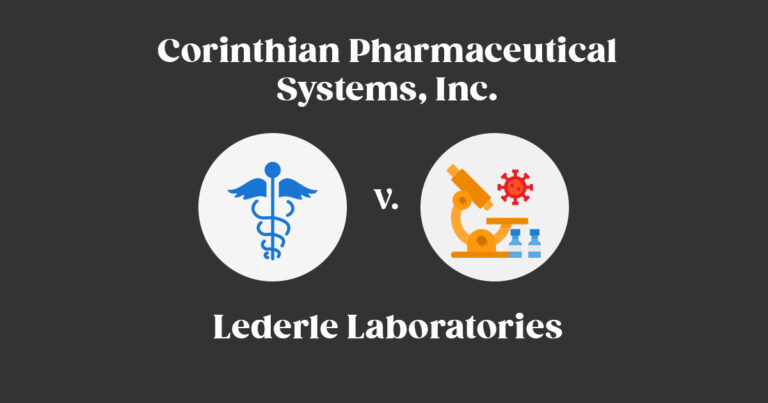Quick Summary
The case involved a dispute over the sale of vaccines. Corinthian (P) ordered 1,000 vials at $64.32 per vial, but Lederle (D) shipped only 50 vials at that price and informed Corinthian that the rest would be filled at the new price of $171. Corinthian sued for specific performance, and the lower court ruled in their favor. Lederle filed for summary judgment arguing that no contract was formed for the sale of the 1,000 vials.
The Supreme Court found that Lederle had not accepted Corinthian’s offer of 1,000 vials at $64.32 per vial and instead offered 50 vials as an accommodation. Furthermore, they communicated that prices remained subject to change at any time, meaning they could have increased the price anyway.
Therefore, no agreement was formed between the parties, and no liability can be imposed on Lederle for damages to Corinthian’s property.
Rule of Law
Price list quotations are mere invitations to make an offer. A shipment of non-conforming goods does not constitute acceptance without the seller’s notification. An offer must be accepted in any manner reasonable under the circumstances. Ministerial/Automated acts cannot be accepted as an agreement.
Facts of the Case
Corinthian Pharmaceutical Systems, Inc. (the plaintiff), a drug distributor, has been buying the DTP vaccines at $64.32 per vial from Lederle Laboratories (the defendant) regularly from 1985 till early 1986. When the cost of self-insurance increased, the defendant raised the price of the DTP vaccine to $171 per vial, effective May 20, and sent a letter to its customers about the same. However, having heard about the imminent price increase, Corinthian ordered 1,000 vials at $64.32 per vial on May 19 with the help of the defendant’s computerized service.
On June 3, Lederle shipped 50 vials at the $64.32 per vial with a letter stating that the rest of the order would be filled at the new price of $171.
Their policies that the price in effect at the time of shipping is to be charged, but they made an exception by shipping a portion of the order at the lower price, and Corinthian can cancel the order for the balance of 950 vials.
Fearing that the defendant’s decision would cause them a great financial loss, Corinthian sued for specific performance. The defendant filed for summary judgment, but the court ruled in favor of the plaintiff and awarded Corinthian a favorable judgment. However, the defendant moved to vacate the verdict, claiming that the damages were excessive. The trial court then reduced the damages to $500, and the plaintiff appealed to the Supreme Court of New Hampshire for further relief.
Issue
Did Lederle Labs agree to sell 1,000 vials of the DTP vaccine to Corinthian Pharmaceuticals at $64.32 per vial by sending the first 50 vials?
Holding and Conclusion
No.
The defendant did not agree to sell 1,000 vials of the DTP vaccine to Corinthian Pharmaceuticals at $64.32 per vial by sending the first 50 vials. Therefore, the transaction was a sale of goods governed by Article 2 of the Uniform Commercial Code (UCC), which states that acceptance need not mirror the offer and shipping conforming goods is acceptance. However, in this case, the defendant notified the buyer that the shipment was only offered as an accommodation, and the invoice required them to assent to those terms. Therefore, no agreement was made.
Reasoning and Analysis
The court found that the defendant did not accept the plaintiff’s offer of 1,000 vials at $64.32 and instead offered 50 vials as an accommodation. This aligns with Article 2 of the UCC, which states that acceptance need not mirror the offer, and shipping conforming goods is acceptance.
The defendant also communicated that the prices remained subject to change at any time, meaning they could have increased the price. Furthermore, the letter sent by the defendant clearly informed the plaintiff that this was a special favor and that the rest would be at a new high price.
Therefore, no agreement was formed between the parties, and no liability could be imposed on the defendant for damages to the plaintiff’s property.
Relevant FAQs of this case
References
Was this case brief helpful?
